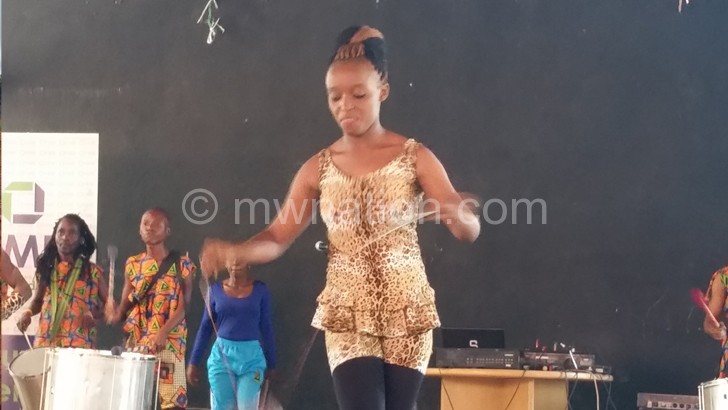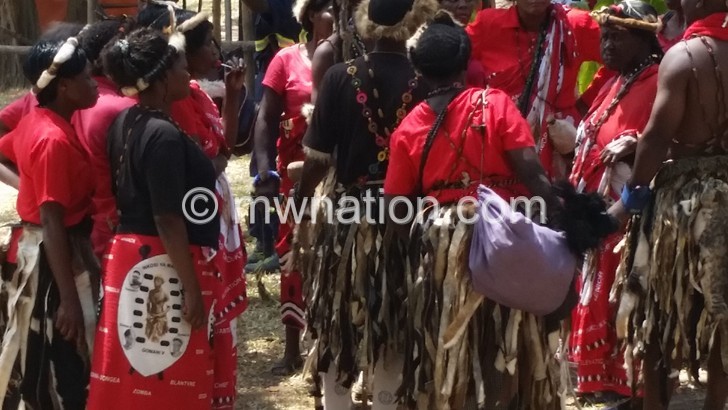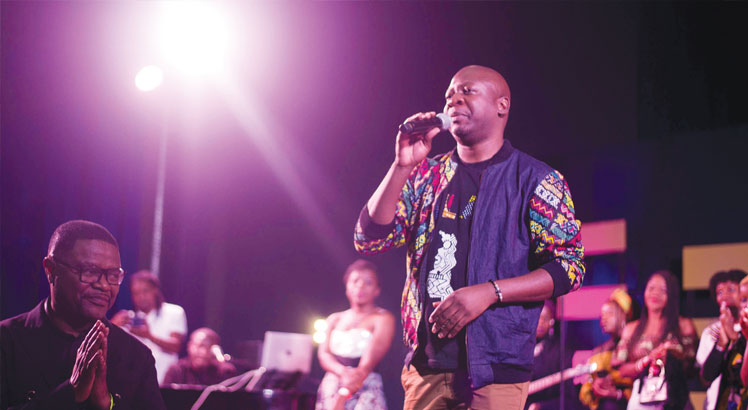BAF defines culture
It is hot and sunny on a Friday morning in Blantyre’s central business district. Some youths are parading, alongside a motorcade, in the city’s busiest road, Chipembere Highway, oblivious to the discomfort of the heat and the suspicious glances they elicit from scores of onlookers.
Some onlookers suspect the parade is an organised protest against anything and everything that is currently wrong in and about Malawi: from the rising costs of living to high employment levels, from intermittent water supply to chronic blackouts, from insecurity to impunity by political leadership. But a closer scrutiny of the youths’ placards assures the watchers that this is, after all, a peaceful parade and a celebration of culture organised by Blantyre Arts Festival (BAF) to mark the beginning of the 2015 edition.

Acrobatics performing
On that Friday, October 2, the youth marched along to the music—including the national anthem—belted out by a youthful brass band. They danced and sang along as they marched resolutely to Blantyre Cultural Centre (BCC)—the venue for this year’s events.
From music, drama, dance and acrobatics to visual arts and literature exhibitions, it was all there on the long programme which kept on shifting based on the availability of performers.
In keeping with the festival’s aim to engage children and schools in the celebration of cultural and artistic diversity, BAF dedicated Friday morning and afternoon to students from different schools to showcase their talents.

perform during the festival
Soche Hill Secondary School, Joyce Banda Foundation, Mountain View School for the Deaf and Ntonya Private School, were among the schools that performed or displayed their artworks at the festival.
In a break from tradition, BAF did not have performers from India, but some students from Blantyre displayed an Indian dance. There was also a dancing group of students who blended Malawian dance with American hip-hop to produce a spectacle of a performance—in a further show of cultural diversity the festival aims to promote.
This was further illustrated in the evening of the day when Malawian bands, the Black Missionaries and the Black Syndicate, shared the main stage with the Great Grandpost from Germany and South Africa’s DJ Fosta and bFake.
The rapping of the Cape Town duo, bFake, was largely underwhelming but it more than made it up with its comic performances.
Their compatriot, DJ Fosta, was a different act, however. If there was a blemish when he took to the decks, it was that no Malawian song made it into his 45-minute playlist. That, perhaps, could be dealing with him harshly considering that even Malawian deejays themselves seldom play local music. All in all, he kept the people on the dance floor.
Great Grandpost showed the audience that they were in a class of their own, with their passionate handling of an acoustic guitar and a piano.
But it was the performances of Anthony Makondetsa and the Black Missionaries which appealed not only to the members of Rastafarian community but to others as well.
It was not just music that was the toast of the day. Baba Watoto Acrobatics from Tanzania made Saturday afternoon interesting. Their repertoire of tricks was wholesome; their performance exquisite. Right from their traditional costumes to cultural dances, Baba Watoto Acrobatics took BAF 2015 by storm.
Saturday night was mainly reserved for gospel music with local artists such as Thocco Katimba and Patience Namadingo and the headliner South African, Rebecca Malope.
The 2015 BAF showcased diversity of Malawian culture through music, food, arts and music and helped to bring people together.





